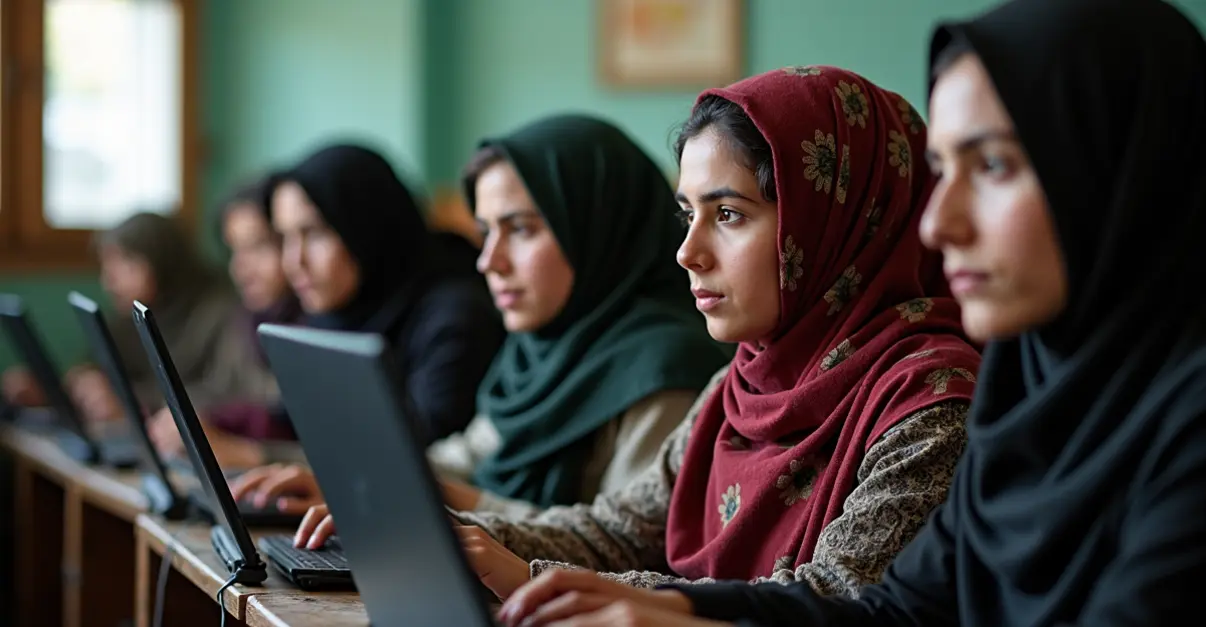Taliban demands to fly their flag at Berlin embassy, escalating push for recognition as Germany engages in direct talks for deportation arrangements amid domestic pressure.

Taliban Seeks Diplomatic Recognition Through Flag Change in Germany
The Taliban has officially requested to hoist their distinctive white flag with black Arabic script at the Afghan embassy in Berlin, marking a significant escalation in their push for international recognition. This demand, revealed by Taliban officials in Kabul to German broadcaster ARD, would replace the current black-red-green flag of the Islamic Republic of Afghanistan and change the embassy's official name to simply 'Embassy of Afghanistan.'
Germany's Diplomatic Dilemma
The German government finds itself in a complex diplomatic position. While no country except Russia formally recognizes the Taliban government due to widespread human rights violations and systematic oppression of women's rights, Germany has been engaging in increasingly direct talks with Taliban representatives. 'This represents a dangerous legitimization of a regime that systematically violates human rights,' warns a spokesperson from the German Institute for Human Rights.
Germany's Foreign Ministry confirms that officials have traveled to Kabul for direct negotiations with Taliban representatives, describing them as 'technical talks' focused on practical arrangements for deporting Afghan nationals. According to ministry sources, these discussions have resulted in agreements about the logistics of deportation flights, though they insist the Taliban received nothing in return.
Deportation Politics Driving Engagement
The growing engagement stems primarily from domestic political pressure. Following several high-profile knife attacks by rejected asylum seekers who couldn't be deported, public frustration has mounted over the government's inability to remove individuals deemed security risks. The far-right Alternative for Germany (AfD) party has capitalized on this sentiment, rising to first place in some polls.
Germany has already conducted two major deportation operations - 28 Afghan men with criminal records in 2024 and another 81 in July 2025. Both operations were facilitated through Qatar, but the current government under Chancellor Friedrich Merz appears to be pursuing more direct channels. 'We cannot allow security concerns to override our commitment to human rights,' argues Green Party foreign policy spokesperson.
Consular Staff Resign in Protest
The diplomatic tensions have already caused significant disruption at Afghanistan's diplomatic missions in Germany. The entire staff of the Afghan Consulate in Bonn resigned en masse in late September 2025, refusing to hand over control to Taliban-appointed officials. In a public statement, the departing consul general declared they were transferring all documents and property to the German Foreign Ministry to prevent them from falling into Taliban hands.
'For nearly four years, we have protected the personal data and documents of hundreds of thousands of Afghan citizens, particularly those evacuated through international programs,' the statement reads. 'Despite significant pressure, we never handed this material to the Taliban.'
Legal and Political Implications
German legal experts note that the government has limited options to prevent the Taliban from changing the embassy flag or name. While Germany could sever diplomatic relations entirely, this seems unlikely given the current political climate and the government's apparent commitment to continuing deportation operations.
The situation represents a broader challenge for Western nations grappling with how to engage with the Taliban regime while maintaining principles of human rights and democracy. As one European diplomat anonymously commented, 'Every concession, no matter how technical, strengthens the Taliban's claim to legitimacy.'
With Germany having accredited two Taliban envoys to manage consular affairs and the flag change demand now public, the diplomatic standoff highlights the difficult balance between practical migration management and principled foreign policy.

 Nederlands
Nederlands
 English
English
 Deutsch
Deutsch
 Français
Français
 Español
Español
 Português
Português









